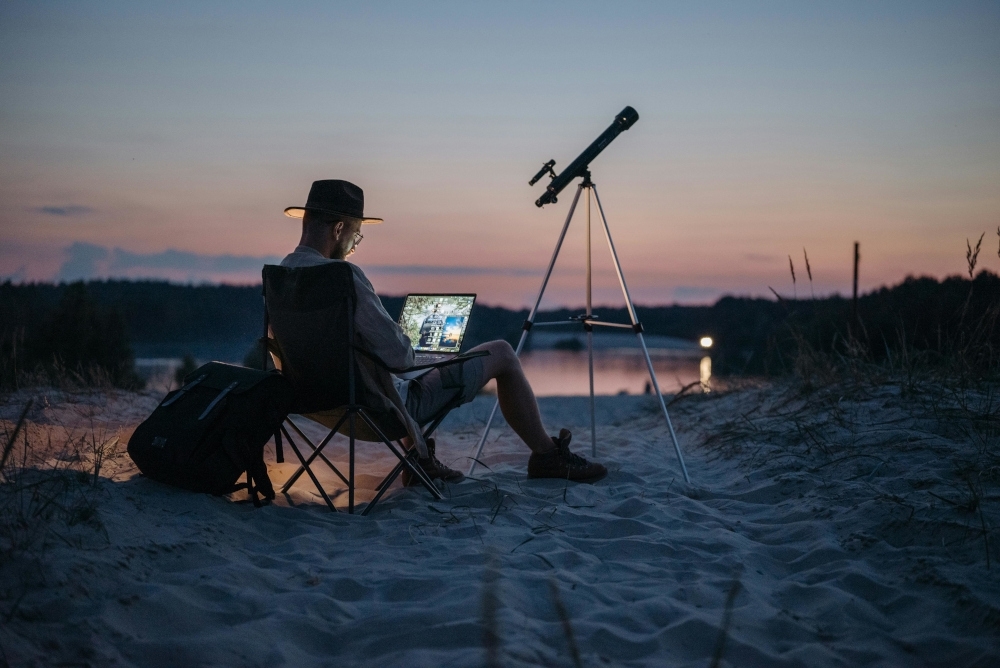Lifestyle

According to figures obtained from Malaysia Digital Economy Corporation (MDEC), there are now 1,120 foreign digital nomads in the country under Malaysia’s DE Rantau Programme. — Picture from pexels.com
New to Versa? It’s an app designed to help you grow your savings easily. Deposit RM100 and get a RM10 bonus with the code MEETING10
By Opalyn Mok
Wednesday, 13 Nov 2024 7:00 AM MYT
GEORGE TOWN, Nov 13 — The number of foreign digital nomads in Malaysia has doubled this year compared to last year, generating an approximately US$20 million (RM87.91 million) in annual spending here.
According to figures obtained from Malaysia Digital Economy Corporation (MDEC), there are now 1,120 foreign digital nomads in the country under Malaysia’s DE Rantau Programme.
This was almost double the number of foreign digital nomads in the country compared to last year which was recorded at 559 individuals.
According to MDEC’s annual survey of the DE Rantau digital nomad community, each nomad spends an average of US$2,000 per month on food, accommodation, transportation, tourism-related activities, education, and recreational pursuits.
The figure does not include income tax contributions from those eligible as all approved DE Rantau Nomad Pass applicants are required to open a Malaysian tax account.
On average, a DE Rantau Nomad Pass holder earns an annual salary of about US$71,000.
“Therefore, if 1,000 nomads reside in Malaysia for a year, the country could benefit from an additional US$20 million in direct spending,” said MDEC in a statement to Malay Mail.
It further added that the digital nomads actively engage in Malaysia’s tech ecosystem and some have also established companies in Malaysia which contributed to jobs creation.
Malaysia introduced its DE Rantau programme for foreign and local digital nomads in 2022 to establish Malaysia as a digital nomad hub in Asean.
Foreign digital nomads may apply for the DE Rantau Nomad pass, which is a professional visit pass, that allows them to stay from three up to 12 months that is renewable for an additional 12 months.
Main pass holders may also bring in their spouse, children and parents.
The DE Rantau Nomad pass is open for digital nomads in the tech industry and remote workers.
Local digital nomads who travel around the country may also register under the DE Rantau programme to gain access to the digital nomad ecosystem that includes accommodation hubs and services such as travel, transport, e-commerce, e-payments and other services.
Since its introduction, a total 1,988 of the DE Rantau Nomad Passes have been approved and 1,120 issued.
The number of applications has also increased by about 25 per cent from 1,561 applications in 2023 to 1,965 applications this year.
A majority of the DE Rantau pass holders are remote workers (at 60 per cent) while the remaining pass holders are digital freelancers.
While most applicants stay in Malaysia for a year, about 25 per cent of them opted to renew their passes to stay here for a second year.
Most of the digital nomads living in Malaysia are from Russia, Pakistan, Japan, the United Kingdom and the United States.
According to MDEC, about 80 per cent of the digital nomads choose to stay in the Klang Valley while the rest are spread out between Penang and Johor Baru.
A check on nomads.com, a website for digital nomads to connect and research destinations, revealed that Kuala Lumpur was listed as number 16 with a high rating for internet speed and low costs of living at approximately US$1,355 per month.
The most popular city for digital nomads, at number one spot in the website, was Bangkok, Thailand.



